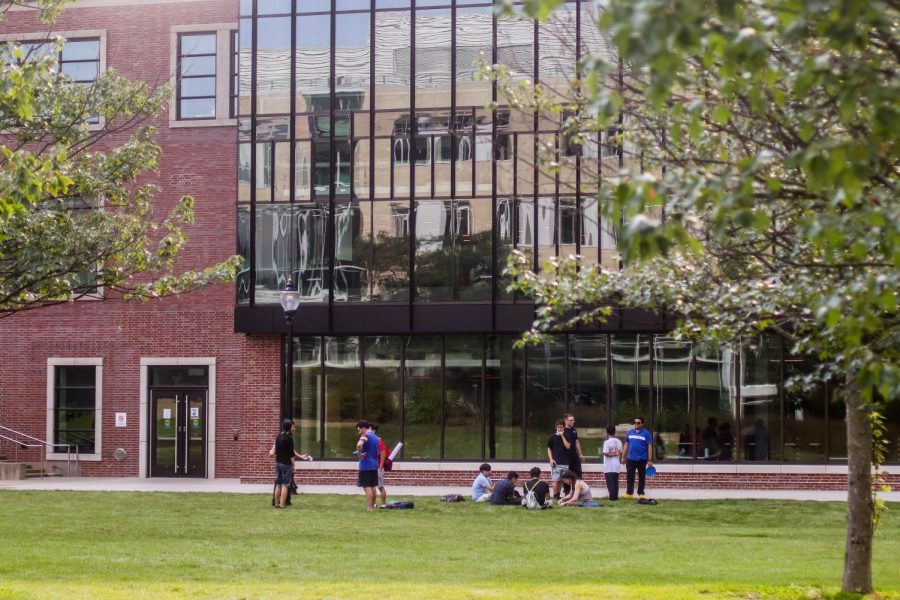I recently overheard a conversation between two of my friends regarding the American higher education system. I am an international student from India and my context is quite different from theirs, so I decided not to butt in. They were speaking about how the system was “destroying individuality” and placing an undue academic burden on students. Gaining admission to a good university was simply a “crapshoot.”
This was news to me.
The whole reason I applied to American universities was the understanding that I would be afforded a level of freedom simply not possible in India. The romanticization of academics over all else would be less of an issue in this country than it would be in mine. Is this just a case of the grass always being greener on the other side? Is there actually a tangible difference between the world’s different education systems? These answers are unclear but not inexplicable.
There are many different institutions of higher education across the world, but generally speaking, we can find some commonalities. In many Asian countries, such as India, there is an extreme focus on academic achievement. Extra-curricular activities in Indian schools are optional at best, and a distraction at worst. There are centralized board exams conducted for high school seniors across the country that act as the sole determining factor for their admission into most universities.
The top colleges in the country have strict academic cutoffs based on these very exams; In 2020, select college programs denied students who scored below a 100 percent (yes, I’m serious). These board exams are simply the tip of the iceberg. Every student must participate, limiting the difficulty of these exams to that of a 12th grade syllabus. For those planning on studying engineering or accounting, far more grueling prospects await.
These types of examinations are not unique to India. The National College Entrance Examination in China, known as the Gaokao, is one of the toughest examinations in the world. The Gaokao is often regarded as the Chinese equivalent of the American SAT — a ludicrous comparison at best. The SAT takes four hours to complete while the Gaokao takes more than nine hours across two days. The South Korean CSAT ups the ante by grounding planes and canceling military trainings for increased focus.
We need to take a step back from the transitional period between high school and college and look at the actual course work. Until the pandemic forced its hand, the Indian education system was quite obstinate in its refusal to allow any kind of electronic aid to students. All assignments were pen on paper, calculators were forbidden and laptops and mobile phones would be confiscated if brought to school.
Answers to seemingly open-ended questions are in fact the opposite, as there are certain dead horses of subject matter you are expected to beat when an essay question arises. The prompt, “Social Media: Boon or Bane,” has a right and wrong answer. This is in contrast to America, where just last week I wrote about flag burning for an English assignment and received full credit.
There is a clear difference in creativity and self-expression allowed by the two systems. One seeks to homogenize and manifest a pre-packaged notion of a good in the pursuit of individuality. The other, for all its flaws, does exactly the opposite.
None of this is to argue that American higher education is in some way perfect. With the space for individuality and creativity comes subjectivity which, for obvious reasons, will have disparate impacts on different students. The subjectivity of admissions essays and “holistic admissions” can be quite frustrating and very well make college admissions seem like a “crapshoot.” It’s this emotion that motivates the “objective” criterion for admissions.
Subjectivity has its flaws, however the alternative is far worse. Essays and activities are the only ways to demonstrate what is unique about you, both as a person and an applicant to a university; They allow you to tell your story, something Americans seem to take for granted. This is a concept so uniquely American that many of my relatives in India still don’t quite understand when I speak of college admissions essays.
Ultimately, though, this piece is not written to deter criticism of the American education model. It is an attempt to steer that criticism away from ideas that have already been tried elsewhere, and in comparison, have failed.
People from India, China and South Korea come to the U.S for a college education. Americans don’t go there.
Manas Pandit can be reached at [email protected].



















